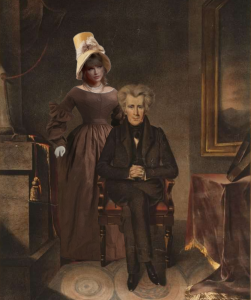
This Thanksgiving, cardigan-wearing indie geeks across the country were thankful for Jeff Mangum.
The splintered genius behind the short-lived Neutral Milk Hotel put out this sophomore effort, “In The Aeroplane Over The Sea,” in early 1998 and promptly disappeared into the kudzu vines of Athens, Ga.
No one knows why, but if he felt like he didn’t fit in, he would have been right.
At a time when the music world was glassy-eyed in love with British electronica, Mangum busted out the accordion like it was 1899. It was a welcome return to a simpler sound, but he wasn’t one to play it safe – on “Aeroplane,” he follows a two-minute dirge with a resigned eight-minute ballad and starts one particular song by hollering “I love you, Jesus Christ!”
The music Mangum wrote and performed with a carnival of backing musicians under the Neutral Milk Hotel banner grew enormously in quality between the group’s two albums.
Its first effort, “On Avery Island,” was prone to fits of turgidity and condescension. While generally listenable, the album lacked focus and never fully delivered.
Something has changed drastically with the release of “Aeroplane,” as exemplified in the artwork. The former disc’s cover recalled a kid’s day at the fair, the band name in a childlike scrawl. By contrast, the latter’s art featured a subdued depiction of an eerily faceless girl on a pier, liner notes augmented by a dusty font. It was as if Mangum aged 60 years in less than two.
It turns out the guy just needed some tragic inspiration. Emotionally stricken by the story of Anne Frank, he set out to capture the poetic tragedy of her tale in song.
As a result, “Aeroplane” is an utterly humorless record but one that demands repeated spins with its sustained humanitarian tone.
For his part as vocalist, Mangum spun the endearingly off-tune approach of lo-fi pioneers Beat Happening and Pavement into something more evocative.
There are no backing vocals here, as Neutral Milk Hotel’s sound is already rich with instruments from flugelhorn to Uilleann pipes to a shortwave radio. Extra voices on the microphone can only clutter the implicit message of one man’s experience with one story.
Mangum makes up for it. He sings each song in an affected whine, letting his thin voice dip, swoop and swing up again as high as his vocal chords will allow – only to crack under the strain and plummet down to heart level.
“Aeroplane” gets right to the point, starting with the homegrown beauty of “The King of Carrot Flowers Pt. 1.” Atop a warmly nostalgic guitar, Mangum pens a love letter that slashes and burns.
Lyrics like “Your mom would drink until she was no longer speaking / and dad would dream of all the different ways to die” cut through the pretty melody like a cigarette ash in your hot chocolate.
The following “Carrot Flowers Pt. 2” is a fuzzed-out bombast with Jeremy Barnes’ rollicking drum section, as if Travis Barker is fighting Cat Stevens for studio space.
It all sounds great, too. Mangum was no patsy for major-label executives hawking the Newest Loudest Album; this was 10 years ago, before intense studio compression rendered individual instruments obsolete. Watch your level on the volume knob – when Mangum yelps in the refrain of “Two Headed Boy,” your ears will feel it.
AC/DC and Tom Petty may have gone against the rock ‘n’ roll zeitgeist with more gusto, respectively fighting bloated prog-rock and elitist post-punk, but none did it with such flagrant insouciance and unwavering disregard for clarity as Mangum. With the commitment to story told through a “Supermarket Sweep’s” worth of archaic instruments, “In The Aeroplane Over The Sea” achieves a level of ramshackle glory Neil Young only brushed against in his Crazy Horse days.
Broke from the iTunes price-gougers? Contact me and I’ll buy you a copy. The masterwork from the Christopher Columbus of present-day indie rock shouldn’t be missed.




